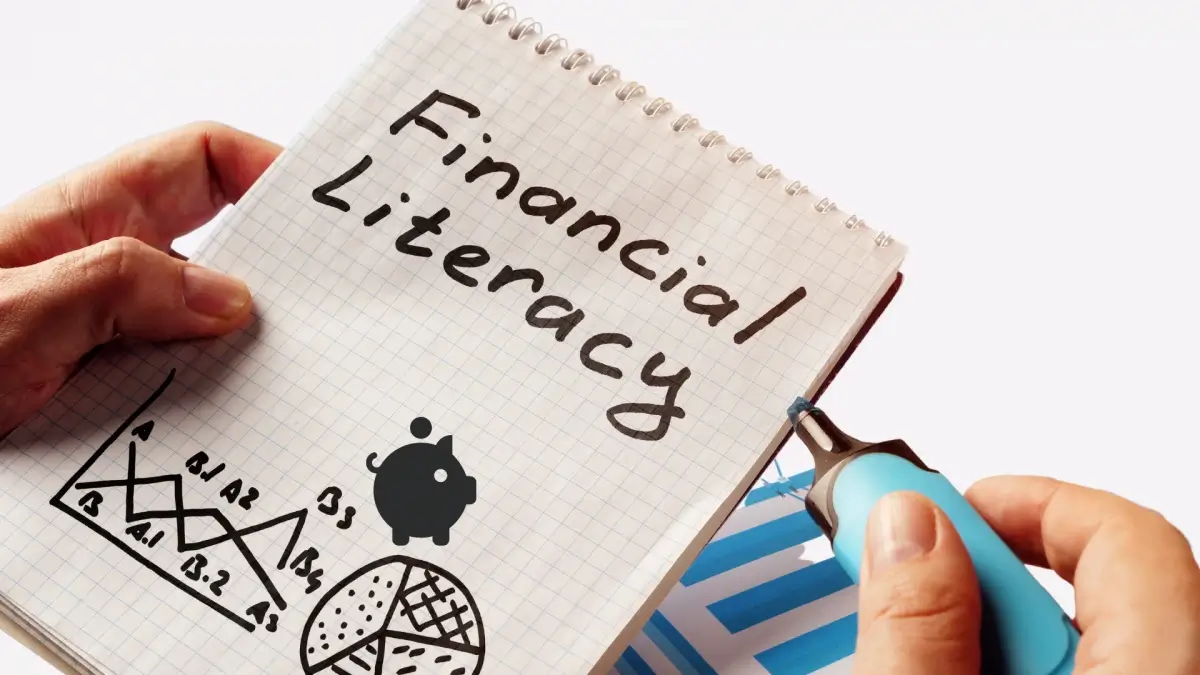Money touches every part of life, from the food you eat to the roof over your head and the choices you make about your future. Yet, many people finish school without ever learning the basics of money management.
Financial literacy isn’t just about balancing a checkbook—it’s about developing the knowledge and skills to manage, save, invest, and make smart decisions that protect your future from any kind of uncertanity. Without these skills, it’s easy to fall into debt or make financial choices that limit your options.

Some people who find themselves overwhelmed by loans or credit cards turn to debt consolidation in New York as a way to regain stability. But prevention is always better than crisis management, and financial literacy provides that foundation.
Understanding the Basics of Money Management.
The first step toward financial literacy is learning the fundamentals of money management. This includes budgeting, tracking expenses, and making sure you’re spending less than you earn. Creating a simple monthly budget gives you a clear picture of where your money is going and allows you to make adjustments.
These habits might sound basic, but they form the building blocks of financial security. Without them, it’s nearly impossible to move on to bigger goals like saving for a home or investing for retirement.
Learning to Save Consistently.
Saving money is about more than just setting aside what’s left over at the end of the month. A financially literate person prioritizes saving before spending. Building an emergency fund is one of the smartest early steps, giving you a cushion for unexpected expenses like car repairs or medical bills.
Once you’ve established that, you can begin saving for larger goals like education, travel, or a down payment on a house. The key is consistency. Even small, regular contributions add up over time, building confidence and financial stability.
Understanding Credit and Debt.
One of the most misunderstood aspects of personal finance is credit. Credit cards, loans, and other borrowing options can be useful tools when managed properly, but they can also become traps when misused. Financial literacy means knowing how interest works, how to avoid paying more than necessary, and how to maintain a strong credit score. It also involves understanding repayment strategies for debt and knowing when to seek help. Managing debt wisely keeps your financial life flexible and prevents it from becoming overwhelming.
Exploring Investment Basics.
Many people shy away from investing because it feels complicated or intimidating. But financial literacy includes at least a basic understanding of how investments work. Knowing the difference between stocks, bonds, mutual funds, and retirement accounts allows you to make choices that grow your wealth over time. You don’t need to become an expert overnight, but understanding how compounding works or why diversification matters puts you in a much stronger position. Investing is one of the most effective ways to build long-term security, and literacy makes it accessible.
Recognizing the Role of Emotions in Money.
Money isn’t purely logical—it’s emotional, too. Financial literacy means recognizing how your feelings influence your choices. Impulse spending, fear of missing out, or even the stress of comparing yourself to others can lead to poor decisions.
Becoming aware of these patterns helps you pause and make more intentional choices. Over time, this awareness reduces stress and builds confidence.
A healthier relationship with money begins when you understand both the numbers and the emotions behind them.
Using Resources to Keep Learning.
Building financial literacy is an ongoing process. Books, podcasts, online courses, and financial advisors all provide tools to expand your knowledge. Community workshops or workplace programs can also be great starting points. The key is to keep learning, even if it’s just one small topic at a time.
As your understanding grows, so does your ability to make confident, informed decisions about your financial life.
Passing Financial Literacy Forward.
One of the most powerful parts of financial literacy is the ability to share it. Teaching children or younger family members about saving, budgeting, and credit helps them build a strong foundation early. Even simple conversations about money can break the cycle of financial stress and set up the next generation for success.
By passing on these skills, you not only strengthen your own financial literacy but also create a ripple effect in your community.
Final Thoughts.
Building financial literacy is about equipping yourself with the tools to manage, save, invest, and make smart money decisions. It starts with learning the basics of budgeting and saving, expands into understanding credit and investments, and deepens with awareness of how emotions shape financial choices.
By using available resources and continuing to grow, you can transform money from a source of stress into a tool for empowerment. Financial literacy isn’t just knowledge—it’s confidence, freedom, and the power to shape your future.
Leave a Reply